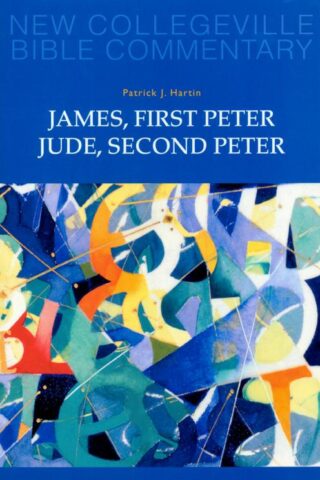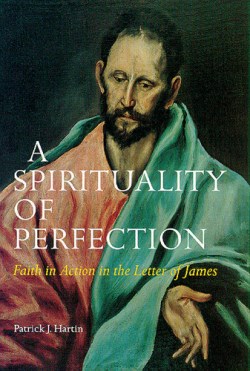Patrick Hartin
Showing all 5 resultsSorted by latest
-
James
$39.95Add to cartIn his commentary on the letter of James, Hartin offers a unique approach toward understanding a much-neglected writing. Refusing to read the letter of James through the lens of Paul, Hartin approaches the letter in its own right. Using recent studies on rhetorical culture, Hartin illustrates how James takes Jesus’ sayings and performs them again in his own way to speak to the hearers/readers of his own world. Readers will discover new and refreshing insights into the world of early Christianity as well as a teaching that is of perennial significance.
-
James 1 Peter Jude 2 Peter
$12.95Add to cartWho would not relish the opportunity to read two-thousand-year-old letters? These four of the seven “catholic letters” are addressed not to any specific church, as are Paul’s epistles, but to the church in general. Giving us valuable insights into early Christianity, they insist on the need to join good works with faith, present Jesus’ sufferings as the model for enduring persecution and warn against intruders intent on undermining traditional faith and morals.
Far from being mere exercises in nostalgia for the “good ol’ days,” the letters offer principles that have not lost their value for the Church of the third millennium.
Patrick Hartin’s clarity and conciseness update the Church’s earliest struggles to remain faithful to the spirit of Jesus Christ. These are letters for us today, too.
-
James Of Jerusalem
$24.95Add to cartThrough the world of James of Jerusalem we discover the development of Christianity and its struggle for self-definition amidst Jewish roots and a rising congregation of newly converted Gentiles. In this time of early Christianity, James’ presence testified to the church’s diversity and he influenced Christianity beyond the literature of the New Testament. Patrick J. Hartin studies the character of James in his various life-roles: as a member of Jesus’ family, as a leader and spokesperson of Jerusalem, and as an important figure in early Christian writing, including that of Paul, and the Acts of the Apostles. The use of historical critical method illustrates for students the growth of traditions and the sources behind the texts.
-
James
$64.95Add to cartIn his commentary on the letter of James, Hartin offers a unique approach toward understanding a much-neglected writing. Refusing to read the letter of James through the lens of Paul, Hartin approaches the letter in its own right. He takes seriously the address to “the twelve tribes in the Dispersion” (1:1) as directed to Jews who had embraced the message of Jesus and were living outside their homeland, Israel. At the same time, Hartin shows how this letter remains true to Jesus’ heritage. Using recent studies on rhetorical culture, Hartin illustrates how James takes Jesus’ sayings and performs them again in his own way to speak to the hearers/readers of his own world.
Hartin examines the text, passage by passage, while providing essential notes and an extensive explanation of the theological meaning of each passage. The value of this commentary lies in its breadth of scholarship and its empathic approach to this writing. The reader will discover new and refreshing insights into the world of early Christianity as well as a teaching that is of perennial significance.
-
Spirituality Of Perfection
$29.95Add to cartThroughout this century the Epistle of James has been viewed consistently as a disjointed set of instructions. In A Spirituality of Perfection Patrick Hartin differs from this approach by showing that the “call for perfection” provides a unifying meaning for the epistle. Examining the concept of perfection against the background of the Graeco-Roman world, the Old Testament, and the Septuagint, Father Hartin shows that perfection provides a key to defining the spirituality of the Epistle of James.
Father Hartin shows how the notion of perfection plays a key role in the definition of God, as well as the way one is called “to be in the world.” He adopts a fresh approach toward understanding the categories of wisdom, eschatology, and apocalyptic as they illuminate the epistle’s advice. He allows James to be read in its own right, instead of through the eyes of other traditions, such as Paul, and shows that what James intends by perfection is different from our modern understanding-that the concept of perfection unlocks an important self-understanding in Christianity.
Just as every generation of believers aims at putting its faith into action, A Spirituality of Perfection culminates with the question: “What direction does the Epistle of James give Christians of the twenty-first century for putting their faith into action?”





